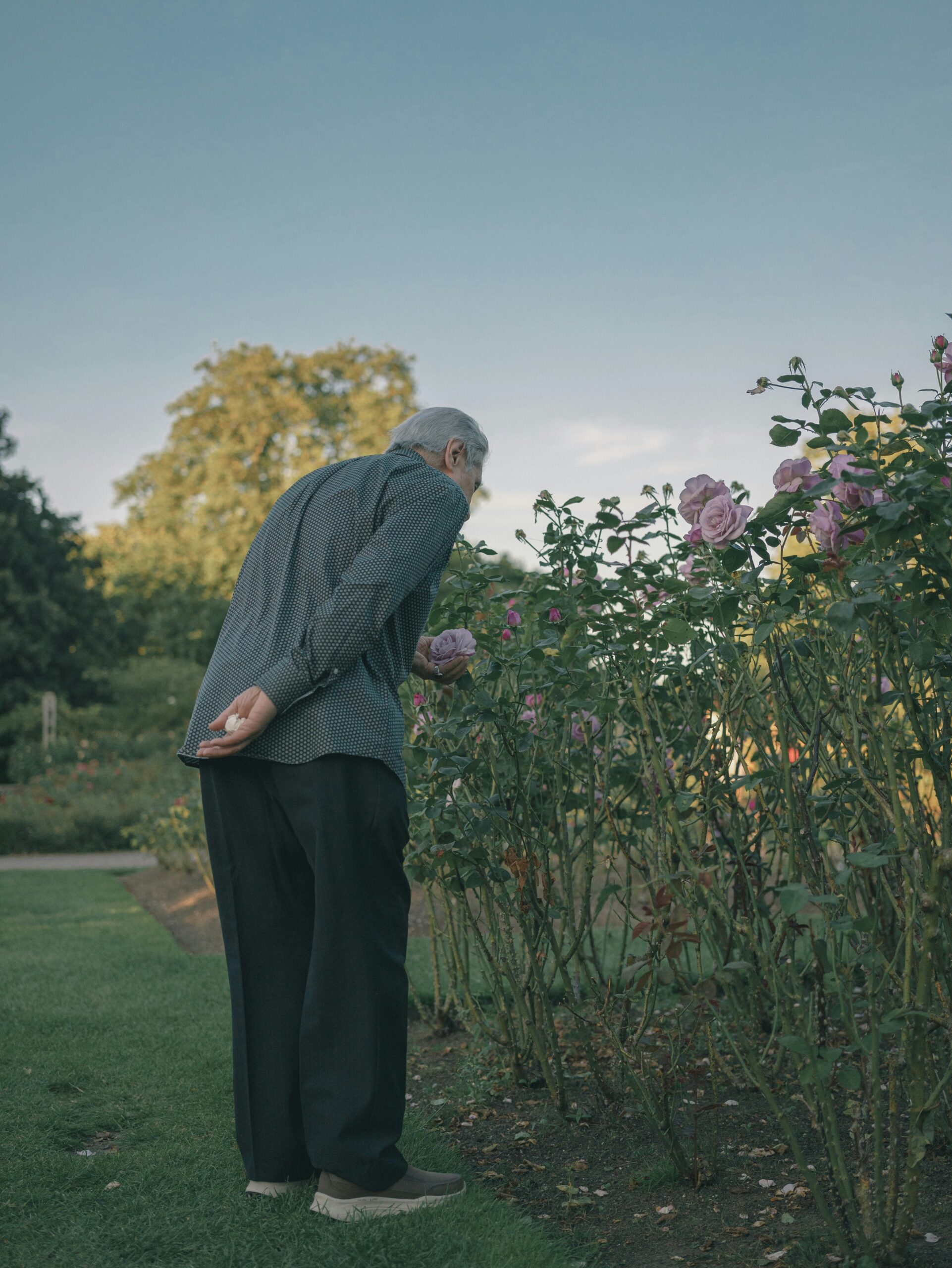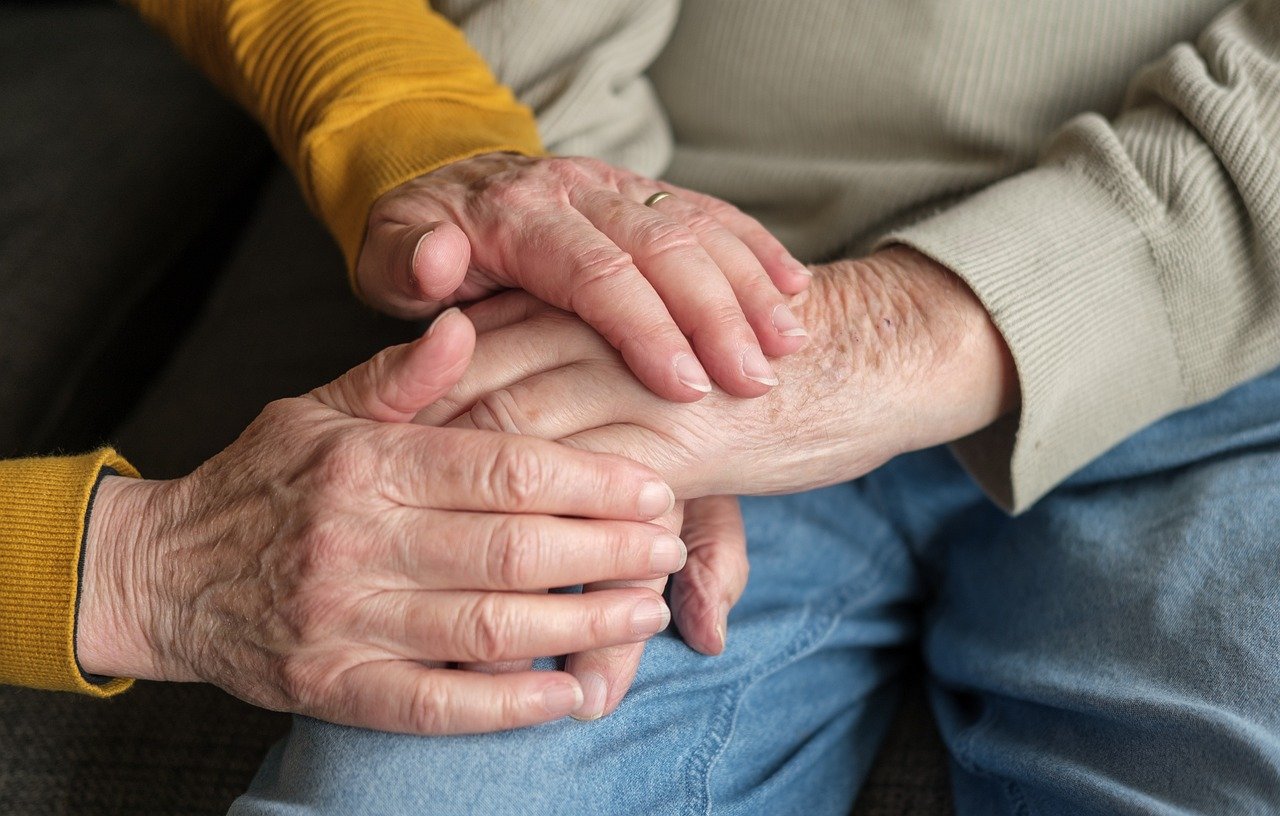Cloverleaf Care Home hosts heartwarming Christmas fair
What a Fantastic Afternoon at Cloverleaf Care Home! A huge thank you...
Learn more
21 January 2025
Palliative care is a specialised approach to medical care that focuses on improving the quality of life for individuals living with serious, chronic, or life-limiting illnesses. Its primary purpose is to provide relief from symptoms, manage pain effectively, and address the emotional, psychological, and spiritual needs of both residents and their families. Unlike treatments aimed at curing an illness, palliative care prioritises comfort and support, ensuring that residents can live as well as possible despite their health challenges.
At its core, palliative care takes a holistic approach to care. It not only addresses physical symptoms such as pain, fatigue, and breathlessness but also provides emotional support to help manage anxiety and stress.
Additionally, it offers social and spiritual guidance tailored to each resident’s individual needs. This type of care is delivered by a multidisciplinary team that works closely with the resident’s existing healthcare providers to ensure seamless and comprehensive support.
Palliative care is distinct from other forms of care such as curative or hospice care. While there are some overlaps between these services, they differ in purpose and timing:
The aim of palliative care is to enhance the quality of life for residents by addressing their physical, emotional, and practical needs. It achieves this by:
By integrating palliative care into a resident’s overall treatment plan, we ensure that they receive compassionate and personalised support tailored to their unique circumstances.

Palliative care is suitable for individuals at any stage of a serious or chronic illness where symptoms significantly impact their quality of life. It is not limited to end-of-life situations but can benefit anyone who requires additional support to manage complex symptoms or emotional challenges associated with their condition.
Palliative care can be beneficial for a wide range of conditions, including:
Palliative care extends beyond the patient to provide essential support for families and caregivers who are often deeply affected by their loved one’s illness. This includes:
Palliative care eligibility is based on need rather than prognosis. The following criteria often indicate suitability:
Unlike hospice care—which typically requires a prognosis of six months or less—palliative care has no time restrictions and can be provided alongside curative treatments.
Palliative care can be introduced at any stage of a serious illness—ideally as early as possible after diagnosis. Early intervention allows residents to benefit from comprehensive symptom management while receiving emotional and practical support throughout their journey. It has also been shown to improve quality of life and reduce psychological distress in patients with advanced illnesses.
Starting palliative care early offers numerous advantages:
While many people associate palliative care with end-of-life situations, it is most effective when introduced early in the course of an illness. For example:
Research shows that early referral to palliative services leads to better outcomes for both residents and families. It allows time for tailored care plans to be developed while fostering trust between residents and their care team.
A common misconception about palliative care is that it signals giving up on curative treatments. However, this is not the case. Palliative care complements medical treatments by focusing on comfort and quality of life rather than replacing them.
At Tanglewood Care Homes, our approach ensures that residents receive the right balance of medical intervention and compassionate support tailored specifically to their needs. By introducing palliative services early in the course of an illness, we aim to provide peace of mind while helping residents maintain dignity and comfort throughout their journey.

Palliative care and hospice care are distinct approaches to supporting individuals with serious illnesses, though they share similarities in their focus on comfort, dignity, and quality of life. The primary differences lie in the timing of care, treatment goals, and the conditions under which each service is provided.
Palliative care can begin at any stage of a serious illness, from the time of diagnosis through treatment and beyond. It is not dependent on prognosis and can be provided alongside curative or life-prolonging treatments. For example, a resident undergoing chemotherapy for cancer may also receive palliative care to manage pain, nausea, or emotional distress.
In contrast, hospice care is specifically designed for individuals who are nearing the end of life. It is typically introduced when a medical professional determines that a person has six months or less to live if their illness follows its expected course. At this stage, curative treatments are usually discontinued, and the focus shifts entirely to comfort and quality of life.
The goal of palliative care is to improve overall quality of life by addressing physical symptoms (such as pain or fatigue), emotional challenges (like anxiety or depression), and spiritual needs. It supports residents in managing their condition while continuing active treatment if desired.
Hospice care, on the other hand, prioritises end-of-life comfort. Its aim is not to cure or prolong life but to ensure that residents experience peace, dignity, and minimal suffering during their final months. Hospice teams also provide extensive bereavement support for families after a loved one’s passing.
Palliative care is suitable for residents with a wide range of serious illnesses, including cancer, heart failure, chronic obstructive pulmonary disease (COPD), dementia, or neurological conditions like Parkinson’s disease. It can be delivered over months or even years as part of a broader treatment plan.
Hospice care is reserved for those with terminal illnesses who have chosen to forego curative treatments. It often involves conditions such as advanced cancer or late-stage organ failure where the focus is solely on symptom relief and emotional support.
Both types of care involve multidisciplinary teams—including doctors, nurses, social workers, and chaplains—working collaboratively to meet the needs of residents and their families.
Patients receiving palliative care may transition to hospice care as their condition progresses. For example:
This transition reflects a shift in priorities—from managing symptoms alongside treatment to prioritising end-of-life comfort. Open communication between healthcare providers, patients, and families is crucial during this time.
Palliative care significantly enhances the quality of life for residents facing serious illnesses by addressing their physical symptoms, emotional well-being, social needs, and spiritual concerns. Its holistic approach ensures that every aspect of an individual’s experience is considered.
Managing physical symptoms is a cornerstone of palliative care. These symptoms often include pain, fatigue, breathlessness, nausea, and loss of appetite. Effective symptom control enables patients to engage more fully in daily activities and improves their overall comfort.
Effective symptom management allows residents to engage more fully in daily activities and enjoy a better quality of life.
Palliative care in care homes focuses on managing distressing symptoms such as pain, fatigue, breathlessness, and nausea. Effective symptom control allows residents to maintain dignity and comfort in their daily lives. For example:
Serious illnesses often bring emotional challenges such as anxiety, depression, or fear about the future. Palliative care provides psychological support through counselling services and coping strategies tailored to each resident’s needs. This helps reduce stress levels and fosters a sense of control over their situation.
Illnesses can disrupt relationships and create feelings of isolation. Palliative care teams work closely with residents’ families to strengthen connections and provide practical advice on caregiving responsibilities. Social activities within care homes also encourage interaction and companionship among residents.
Palliative care strengthens social connections by:
Spirituality often becomes a significant concern for patients facing serious illnesses. Palliative care integrates spiritual support by:
Palliative care extends its benefits beyond the resident to include family members. By offering guidance on decision-making processes and providing emotional support during difficult moments, it eases the burden on loved ones. Research has shown that early integration of palliative care improves outcomes such as reduced hospital admissions and enhanced satisfaction with overall care.

Palliative care encompasses a wide range of services designed to address the physical, emotional, social, and spiritual needs of residents with serious illnesses. These services are delivered by multidisciplinary teams working collaboratively to ensure comprehensive support.
Managing pain effectively is a cornerstone of palliative care. This may involve:
The goal is to minimise discomfort so that residents can focus on enjoying meaningful activities.
Beyond pain management, palliative care addresses other distressing symptoms such as:
These interventions improve daily functioning and overall comfort.
Residents often experience emotional challenges due to their illness or treatment journey. Palliative teams provide counselling sessions tailored to individual needs while fostering open communication about fears or concerns.
Spirituality plays an important role in coping with illness. Residents have access to chaplains or spiritual advisors who offer guidance aligned with personal beliefs—whether religious or secular—to promote inner peace during difficult times.
Palliative teams act as coordinators between various healthcare providers involved in a resident’s treatment plan. This ensures seamless communication across disciplines while avoiding unnecessary hospitalisations or duplicated efforts.
Families receive practical advice on caregiving responsibilities alongside emotional counselling tailored specifically for them. Bereavement support is also available after a loved one’s passing.
In the UK, palliative care is widely available through the NHS and is generally free at the point of use. NHS-funded palliative care can be provided in various settings, including hospitals, hospices, care homes, or even at home, depending on the resident’s needs. For individuals with complex or severe health conditions, NHS Continuing Healthcare (CHC) funding may also cover the costs of care. Those eligible for CHC funding under the fast-track pathway for end-of-life care have a legal right to access personalised health budgets, giving them more control over their care preferences.
For residents opting for private healthcare, many health insurance policies in the UK include provisions for palliative and end-of-life care. Providers such as Bupa, Aviva, and AXA Health often cover services like pain management, symptom relief, and emotional support. Some policies also offer additional benefits like access to private hospitals, advanced diagnostics, or treatments not routinely available on the NHS. However, coverage varies depending on individual policies and underwriting terms. It’s important to review your policy documents or consult your insurer to confirm what is included.
If you are paying privately for care or using insurance, some exclusions may apply. For example, pre-existing conditions may not be covered immediately under certain policies. Residents are encouraged to check with their insurer to understand any limitations.
At Tanglewood Care Homes, we work closely with residents and their families to navigate funding options and ensure that everyone receives high-quality palliative care tailored to their needs.
Residents receiving palliative care do not need to stop seeing their primary doctor or specialist. Palliative care is designed to work alongside existing healthcare providers rather than replace them. The aim is to complement ongoing medical treatments by offering additional support focused on improving quality of life.
Palliative care teams collaborate closely with GPs, consultants, and other healthcare professionals to ensure continuity of care. This multidisciplinary approach allows residents to benefit from comprehensive treatment plans that address both curative and comfort-focused needs. For example:
By maintaining these partnerships, residents receive seamless care tailored to their unique circumstances. At Tanglewood Care Homes, we prioritise communication between all parties involved in a resident’s care to ensure that everyone is working towards shared goals.

A common misconception about palliative care is that it marks the end of curative treatments. In reality, palliative care can be provided alongside curative or life-prolonging therapies. Its purpose is not to replace medical interventions but to enhance overall wellbeing by addressing symptoms and providing holistic support.
For example:
This dual approach ensures that residents can pursue treatments aimed at improving their health while also receiving comfort-focused care that prioritises quality of life.
In some cases, residents may transition exclusively to palliative care if curative treatments are no longer effective or desired. However, this decision is always made collaboratively between the resident, their family, and healthcare providers based on individual goals and preferences.
Palliative care is a holistic approach that not only supports residents with serious illnesses but also provides significant benefits to their families, caregivers, and healthcare providers. At Tanglewood Care Homes, we recognise that serious illnesses affect everyone involved, and our palliative care services are designed to ease the burden on all parties.
Family members and caregivers often face emotional and physical challenges when supporting a loved one with a serious illness. Studies have shown that palliative care interventions can improve caregiver preparedness, competence, and emotional well-being while reducing unmet needs and psychological distress. Palliative care offers vital support to these individuals by:
Research indicates that caregivers of individuals receiving palliative care experience lower rates of depression and stress compared to those without access to such support. This ensures that families can remain present and emotionally available during this critical time.
Palliative care also benefits healthcare providers by complementing their efforts. Residents do not need to stop seeing their primary doctor or specialist; instead, palliative teams work alongside them to provide an extra layer of support. This collaboration ensures:
At Tanglewood Care Homes, we prioritise the needs of both residents and their families. By offering comprehensive support for everyone involved, we ensure that no one feels alone during this challenging journey.
Palliative care is highly flexible and can be delivered in various settings depending on the resident’s needs and preferences. At Tanglewood Care Homes, we offer personalised palliative services while coordinating with external providers when necessary.
Care homes like Tanglewood are ideal settings for palliative care. They provide a comfortable, familiar environment where residents receive round-the-clock support tailored to their individual needs. Key benefits include:
Hospitals often provide short-term palliative care for residents requiring specialised interventions or acute symptom management. Many hospitals in the UK have dedicated palliative care teams who collaborate with ward staff to ensure comprehensive support.
Hospices specialise in end-of-life and complex palliative care needs. They offer a serene environment focused on comfort and dignity while providing respite for families. Hospices are particularly suited for residents whose symptoms cannot be managed at home or in a care home.
For those who prefer to remain at home, community-based palliative teams deliver care through regular visits. According to NHS data, an increasing number of individuals in the UK choose home-based palliative care due to its personalised nature and familiarity.
One of the strengths of palliative care is its adaptability. Residents may transition between settings based on their changing needs. For example:
At Tanglewood Care Homes, we ensure seamless transitions between these settings while prioritising each resident’s comfort and preferences.

Palliative care is delivered by a multidisciplinary team (MDT) comprising professionals from various fields who collaborate to provide holistic support tailored to each resident’s unique needs. At Tanglewood Care Homes, our MDT ensures that every aspect of a resident’s wellbeing is addressed comprehensively.
The MDT meets regularly to discuss each resident’s progress and adjust their care plans as needed. This collaborative approach ensures that all aspects of a resident’s wellbeing—physical, emotional, social, and spiritual—are addressed comprehensively.
At Tanglewood Care Homes, our MDT works closely with external providers such as GPs or hospital consultants to ensure continuity of care across different settings.
One of the key roles of palliative care is empowering residents to make informed decisions about their treatment options in alignment with their personal values and goals. At Tanglewood Care Homes, we prioritise open communication between residents, families, and healthcare providers.
The palliative team provides clear information about available treatments—including their risks, benefits, and potential outcomes—so residents can weigh their options effectively. This aligns with the principles of shared decision-making and patient-centred care in palliative services. For example:
Palliative care teams take time to understand what matters most to each resident—whether it’s prolonging life, maintaining independence, or spending more time with loved ones. These priorities guide decision-making processes so that treatments align with individual preferences.
The team acts as a bridge between residents and other healthcare providers by ensuring everyone involved understands the resident’s wishes. This reduces confusion or conflicting advice while fostering trust among all parties.
At Tanglewood Care Homes, we believe every resident deserves autonomy over their healthcare journey. By providing compassionate guidance throughout the decision-making process, we ensure that each choice reflects what truly matters most to them.
End-of-life care is a vital component of palliative services, ensuring that residents and their families are supported with dignity, compassion, and comfort during the final stages of life.
The primary focus of end-of-life care is to ensure that residents are as comfortable as possible. This includes:
End-of-life care also extends to families and caregivers. We provide:
At Tanglewood Care Homes, we strive to create a calm and peaceful environment where residents can spend their final days surrounded by loved ones. Our compassionate staff are available 24/7 to ensure that every need is met promptly and sensitively.
End-of-life care is about more than managing symptoms—it is about honouring the resident’s wishes, preserving their dignity, and supporting their family through one of life’s most challenging transitions.

Palliative care can be introduced at any stage of a serious illness—not just in the final weeks or months. At Tanglewood Care Homes, we encourage residents and families to consider palliative care as early as possible to maximise its benefits.
Palliative care is appropriate whenever a person is diagnosed with a serious or chronic condition that impacts their quality of life. Consider seeking palliative care if you or a loved one:
It’s important to note that palliative care can be provided alongside curative or life-prolonging treatments. For example:
Introducing palliative care early in the course of an illness offers numerous advantages. Research and clinical experience consistently show that early intervention leads to better outcomes for both patients and their families.
Seeking palliative care early offers numerous advantages:
Palliative care is not limited to end-of-life situations. Its person-centred approach ensures that patients are treated as individuals rather than defined solely by their illness. It can be integrated into treatment plans at any stage to complement curative or life-prolonging therapies. For example:
By seeking palliative care early, residents gain access to comprehensive support that improves their overall experience while navigating serious illnesses.
Tanglewood Care Homes offers exceptional palliative care services designed to provide comfort, dignity, and holistic support for residents and their families during challenging times. Our approach is rooted in compassion, expertise, and a commitment to delivering personalised care that meets the unique needs of each individual.
At Tanglewood, we understand that every resident’s journey is different. Our palliative care plans are tailored to address the specific physical, emotional, and spiritual needs of each resident. By involving families in the planning process, we ensure that care aligns with personal values and preferences. Whether it’s managing pain, alleviating distressing symptoms, or providing emotional reassurance, our team is dedicated to enhancing quality of life.
We also recognise the importance of creating a warm and welcoming environment. Each of our 18 care homes across the UK is designed to feel like home, with comfortable surroundings that promote peace and relaxation. Residents are encouraged to personalise their spaces, fostering a sense of familiarity and belonging.
Our team at Tanglewood includes highly skilled carers, nurses, and support staff who are trained in delivering palliative care with sensitivity and professionalism. They work closely with external healthcare providers, such as GPs and specialists, to ensure continuity of care. This multidisciplinary approach allows us to address complex needs effectively while maintaining a focus on comfort and dignity.
Our staff also provide emotional support for families, helping them navigate the challenges of serious illness with empathy and understanding. Bereavement support is available after a loved one’s passing to ensure families feel supported during their grieving process.

Tanglewood Care Homes are equipped with modern amenities that enhance the resident experience. From private rooms designed for comfort to communal spaces that encourage social interaction, our facilities cater to both individual needs and community engagement. Many of our homes feature on-site hairdressers, cafes, sensory gardens, and even cinema rooms—ensuring residents have access to activities that bring joy and fulfilment.
Palliative care at Tanglewood goes beyond physical symptom management. We address emotional wellbeing through counselling services, offer spiritual guidance tailored to individual beliefs, and provide practical support for families. This approach ensures that residents feel valued and supported in every aspect of their lives.
Tanglewood Care Homes is committed to being the provider of choice for residents seeking high-quality palliative care. Our ethos—rooted in compassion, innovation, understanding, and empathy—guides everything we do. We aim to create an environment where residents can live with dignity while receiving the highest standard of care.
By choosing Tanglewood Care Homes for palliative care, you are selecting a provider dedicated to making every moment meaningful for residents and their families. Our compassionate team is here to support you every step of the way.
To learn more about Tanglewood Care Homes or to arrange a visit to one of our care homes, please call us on 01205 358888 or email us at info@twhealthcare.co.uk.